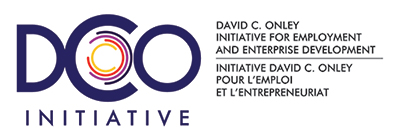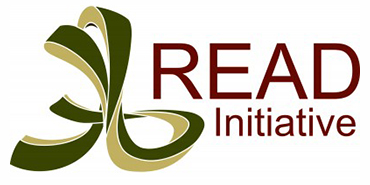Accessibility for all, irrespective of the physical, mental or social challenge is one of the important goals of Education City. Emanating from Carleton’s culture of accessibility grew the need to bring together the various accessibility initiatives, people and resources.
David C. Onley Initiative
for Employment and Enterprise Development
In May 2018, Carleton announced a joint two-year initiative with the Ministry of Advanced Education and Skills Development. A $5-million investment by the Province of Ontario paved the way for the creation of the David C. Onley Initiative for Employment and Enterprise Development to help more students with disabilities be successful once they graduate.
The Onley Initiative will assist students with disabilities through support and mentorship for entrepreneurial development; employment support, including connecting students to employers; and one-on-one coaching and mentoring for students. Our hope is to not only change the statistics on employability but also work with employers to make the process of recruiting, supporting and promoting people with disabilities just as effective as when dealing with people without identified needs.
We have centres established in each of the participating institutions to support and mentor students and are actively looking for industry, not-for-profit and government partners to participate in this important initiative.
READ (Research, Education, Accessibility and Design)
READ was pioneered by two longtime accessibility champions at Carleton University: Larry McCloskey, the founder of the Paul Menton Centre, and Dean Mellway, a three-time Paralympic medallist. READ strives to achieve five major objectives:
- Research. We have the expertise among Carleton faculty and staff to engage in world-class research and the much-needed knowledge building in accessibility. READ brings together this expertise within and beyond Carleton, across disciplines and industries, with the goal to establish prestigious Research Chairs in Accessibility.
- Education and training. The greatest challenges to accessibility are still the negative attitudes, stigma, lack of understanding and expertise. READ leverages the resources of the universities and colleges to provide and coordinate education and training in disabilities, accessibility and universal design.
- Program and policy development. Whether it is through good will or legislative requirements, institutions and businesses need guidance to consider accessibility in their programs, services and policies. We work with governments, public and private sectors provincially and nationally, to improve education, employment and health for persons with disabilities.
- Innovation and design. READ was originally, and still continues to be, driven by accessibility innovation in engineering and design. We are bringing creative minds together to push the boundaries of accessible design of products, spaces and technology through interdisciplinary, holistic collaborations.
- Networks of partners in accessibility. We envision READ as the first Centre of Excellence in Accessibility, but not the only one. We see the potential for a network of such centres across Canada to serve collectively as a catalyst for change. We already have the necessary capacity in our faculty, staff and students, whom we wish to bring together with like-minded partners, nationally and globally.
Contact
Carleton University Dr. Boris Vukovic |
Algonquin CollegeName |
La Cité collégiale Name |
University of OttawaName |

